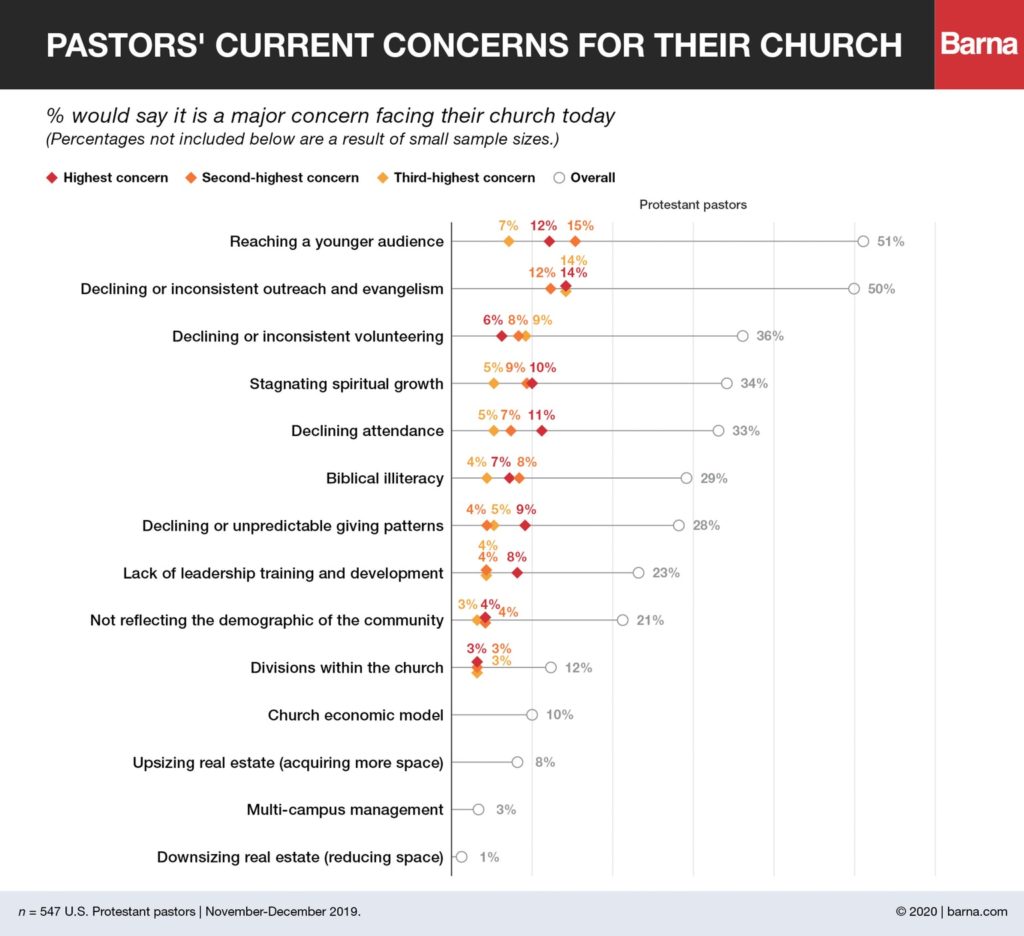
Photo: Courtesy.
A new study conducted by Barna Group, an evangelical Christian polling firm based in USA reveals that 72% of Pastors are concerned about ‘watered-down gospel,’ and around half (51%) are still challenged when it comes to “reaching a younger audience.”
The organisation reached out to more than 500 senior pastors, and asked them which issues they believed were a major concern facing the Christian church.
Pastors were recruited from publicly available church listings covering 90 percent of U.S. churches that have a physical address and a listed phone number or email address. The survey was conducted between Nov. 15 and Dec. 17 and released Feb. 3.
Seven concerns about the Church topped 50 percent:
- Watered-down gospel teachings (72 percent)
- Culture’s shift to a secular age (66 percent)
- Poor discipleship models (63 percent)
- Addressing complex social issues with biblical integrity (58 percent)
- Prosperity gospel teachings (56 percent)
- Reaching a younger audience (56 percent)
- Political polarization in the country (51 percent)
Following close behind at 50 percent is a concern about “declining or inconsistent outreach and evangelism.” According to Barna, those results match up with its recent finding that increasing numbers of Christian Millennials aren’t fans of sharing their faith.
Pastors’ other top concerns for their own churches include “declining or inconsistent volunteering” (36 percent), “stagnating spiritual growth” (34 percent), “declining attendance” (33 percent), and “biblical illiteracy” (29 percent).
“It’s worth noting that many of the possible issues listed above regarding the Christians Church in the U.S. generated a strong general response compared to the more localized ones,” a Barna analysis told Chistianheadlines.com. “This full ranking alludes to many of the opportunities, debates and divisions taking place within the Church right now, from leader burnout to church abuse scandals to women’s roles in ministry.”

At the bottom of the list are concerns about real-estate matters, economic models, and multi-campus management.

